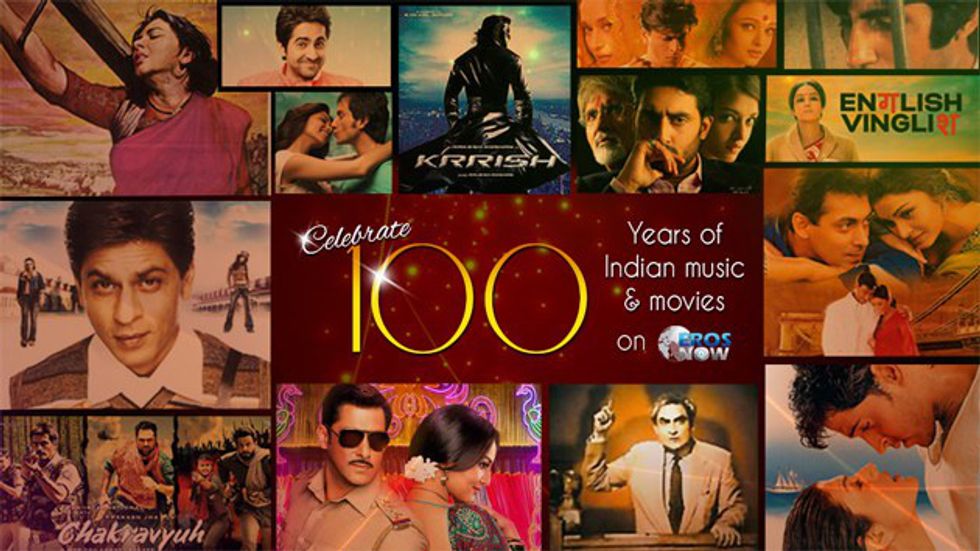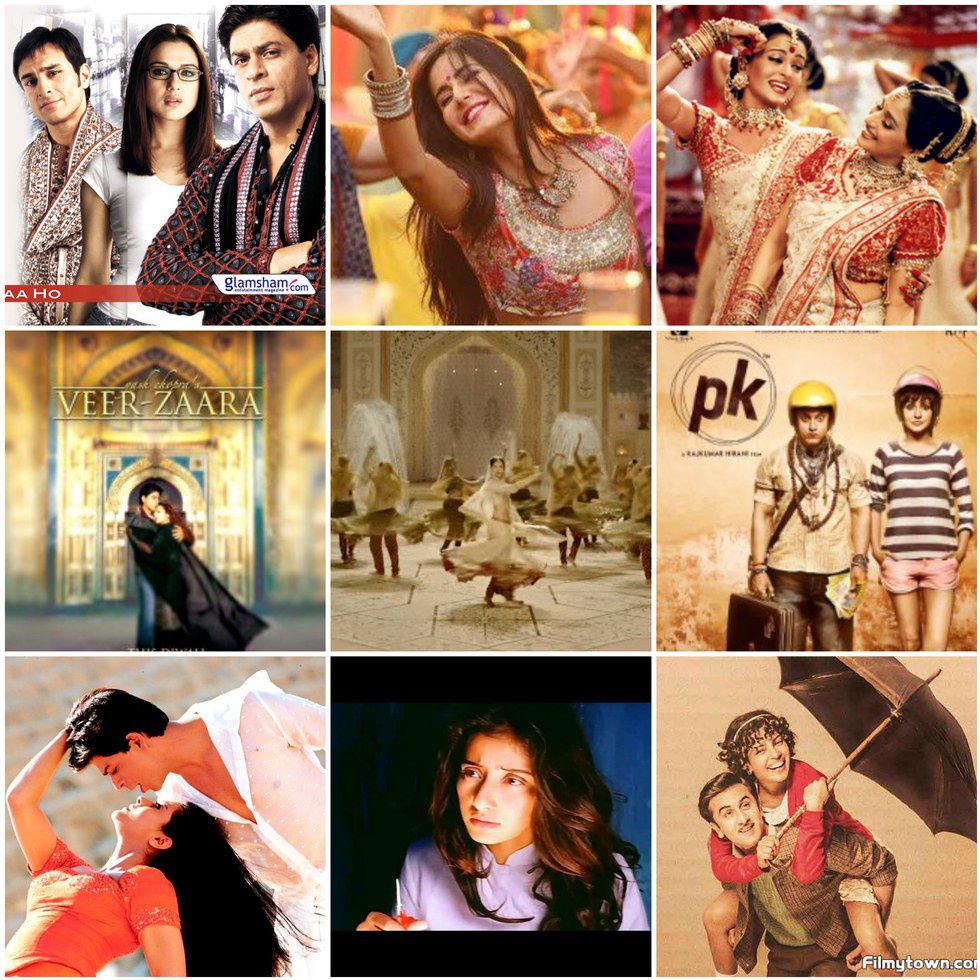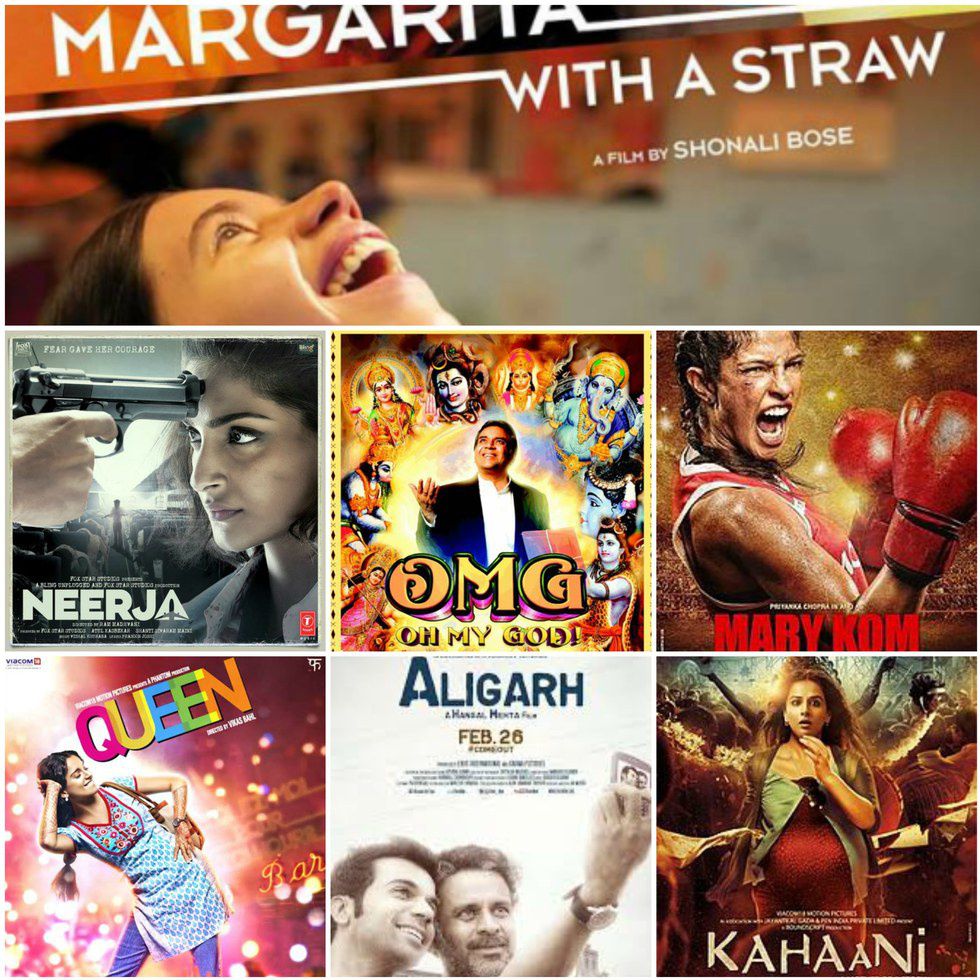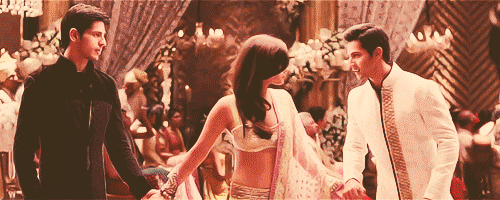As I blast "Nachde Ne Saare" from the speakers and dance gleefully for the 1 millionth time this week, I realize I don't just "watch" Bollywood movies, I actually "live" them. I don't even remember when I started watching Hindi cinema (maybe at the early age of 2 or maybe at 5), but I haven't stopped since then. I thought my Bollywood obsession was a phase that would slowly wear away with age like my obsession with Cartoon Network and Nickelodeon shows, but it has only been getting stronger with the passing years. I, like many other Nepalis, taught myself a whole new language just by watching too many Bollywood movies. So, I don't even have to exaggerate my feelings to say that my life would be extremely dull and dreadfully mundane without some Dharma and Yash Raj dramas.
What is life without some synchronized dance on the streets and the weddings, the love affairs, the heartbreaks, the masala plot lines, the hero fighting the whole army of bad guys alone, the happy endings, and the music that touches your soul? I have lived Bollywood. I was right next to Kajol when she ran from Chandni Chowk to the Pyramids of Egypt to do erotic dance with Shah Rukh Khan. I was there when Amrish Puri was debating on whether to let his daughter Simran run behind a moving train to pursue her lover or not; I was there with him saying saying, "Ja, Simran, Ja, Jee le apni Zindagi." I was there for Kashibai when she was heartbroken and alone after Bajirao left her for Mastani. I stood beside Paresh Rawal while he filed a lawsuit against the god and god-men. I was there looking for Jhilmil with Barfi when she went missing. I was there with Katrina Kaif, Farhan Akhtar and the team trying to figure out why life is so complicated while having a luxurious vacation around Europe. I was there with Rancho and his team, with PK, with Krish, with Don, Dev and Paro. I have been there from the last 19 years, witnessing and admiring the magic that is Bollywood cinema.
With more than 700 movies released per year, Bollywood is one of the biggest movie industries, surpassing even Hollywood when it comes to the number of movies produced each year. But what makes Bollywood so different and so special is the way the stories are told. Bollywood movies are not just movies; they are celebration of life, of relationships and of emotions. Everybody will connect to the movies; it does not matter whether you understand Hindi or not. My friend from Romania breaks into tears every time I sing "Tere Liye" from Veer Zara. She says she has watched the movie multiple times, and still cannot get enough of it. She has watched Devdas so many times she actually remembers most of the dialogues. My another friend from Kenya worships Shah Rukh Khan and his movies. For her, Dilwale Dulhaniya Le Jayenge is "cinematic perfection." Two years ago, I showed "Kal Ho Na Ho" to some of my friends here in the United States, the people who had no idea what Bollywood movies were all about, and by the end of the movie everybody was in tears, including men who had seriously adhered to the traditional gender roles and were determined on not crying. Bollywood has touched lives of people everywhere: from Asia and Europe to North and South America.
For me, it is a part of my identity. After 19 years of following Hindi Cinema and music, it has become a part of who I am. Bollywood not only helps me get over any kind of stress, but it also helps me connect to my own culture--which is not exactly same, but similar to Indian culture. It connects me to home. It makes me incredibly happy. It assures me that everything does not have to be western to be perfect. It makes me a proud South Asian. While diplomatic relations between India and Nepal continue to turn sour, it is one of the reasons I have not turned bitter towards my neighbor. Bollywood holds that level of my respect. I would, without any apology, choose Arjit Singh, Armaan Malik, and Shreya Ghosal over Beyonce, Justin Timberlake or Taylor Swift. I would prefer watching Shah Rukh Khan and Aishwarya Rai over Brad Pitt and Angelina any day.
The earliest memory I have of my childhood is singing "Raju Chacha song" and dancing to Duplicate's "Mere Meheboob Mere Sanam" with my sister. Bollywood helped me dream big, and it helped me believe in happy endings, family and friendships. Of course, the romances are unreal and the drama is intense, but seriously, If you did not fall in love like Shah Rukh Khan and Kajol, is it really love? If you do not dance in the fields of Switzerland, do you even know what romance is? if you do not fight army of bad guys alone, are you really a hero? Okay, I am just kidding, or not. But in the last few years, I have seen Bollywood grow out of movies full of unreal romances and extravagant weddings to more meaningful movies like Queen, Aligarh, Oh My God, PK, Rajneeti, Neerja and Mary Kom.
But either way, it has stuck to its roots. While the entertainment industries everywhere have started being highly influenced by Western pop culture, Bollywood has at least stuck to its Indian roots(for the most part) I cannot say that for more than 700 movies that come out each year, but I can say that about the movies that I actually love watching, and the movies that are usually critically acclaimed. But amidst the dances and the romances, the drama, and the fights, Bollywood provides a melting pot for everyone from every economic status, every culture, every country and every religion. It provides affordable entertainment for everyone. It has always opened its gates for outsiders, even the ones who do not speak proper Hindi like Katrina Kaif, who has worked her way to the top now and is one of the highest paid Indian actresses and an incredible dancer.
Bollywood definitely has problems, like objectifying and overtly sexualizing women, conveying homophobic ideas, and glorifying the rape culture, but it is slowly fighting the trends too. Movies like Queen, Mardani, Kahani, and Neerja have proven that the success of the movie does not depend solely on the star power of the male lead in the highly male dominated industry. Female leads have started gaining appreciation and the credits that were long due. Bollywood Actresses like Priyanka Chopra and Aishwarya Rai have gone on to become Times' 100 most influential people, which is truly inspiring considering how they come from middle class families from small towns in India. Bollywood is letting go of its old, oppressive trends, while sticking to its cultural roots, which is the best thing about it. For the vast majority of its audiences, who are mostly South Asians, it holds power to shape their perception and ideas. It holds the power to fight the misogyny, sexism, and homophobia rampant in India and most other South Asian countries. Entertainment has always been a medium to convey social messages and ideas, and fight the oppression and dangerous social practices, and Bollywood has slowly started using its influence to fight them, while entertaining everyone from every part of the world.
I am very aware that I need to work on my Bollywood obsession, but who knows, I might write screenplay for Bollywood movie someday. Until then, I will keep hoping that everyone in my class will suddenly break out singing and dancing like this:

























